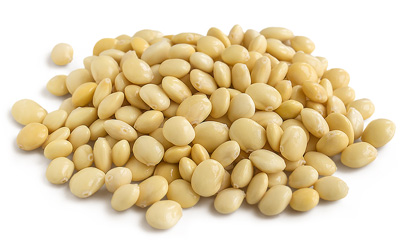Dietary interventions aimed at increasing protein and fiber can promote weight loss and dramatically reduce the risk of cardiovascular disease. However, finding foods that provide protein and fiber, yet are low in simple carbohydrates, is challenging.
Instead, research has focused on identifying high protein and fiber foods that could be added to commonly consumed high-carb foods, such as bread. With its 15 grams of protein and 3 grams of fiber per 100 grams, lupin is a worthy candidate for a functional food.1
This clinical trial was conducted to study the effects of lupin-enriched foods on weight and cardiovascular disease risk factors in overweight adults.
The Study
To put their hypothesis to the test, researchers from the University of Western Australia recruited 131 overweight and obese adults and assigned them to two groups. The first group was consuming lupin flour-enriched foods (bread, biscuits, and pasta), while the second group was eating matching high-carb control foods.
The trial lasted for 12 months, which included undergoing three months of weight loss (35% energy restriction), one month of weight stabilization, and eight months of weight maintenance.
Researchers evaluated body weight, body composition, and cardiovascular disease risk factors three times throughout the study (e.g., at baseline and at 4 and 12 months). Their findings were published in the International Journal of Obesity.
The Results
There were no significant improvements in terms of weight loss or weight maintenance in either of the groups.
However, there were substantial reductions in systolic and diastolic blood pressure in adults consuming lupin at the 12-month check-up.
In addition, the lupin group showed significantly reduced fasting insulin concentrations and homeostasis model assessment (HOMA) scores, both at the 4- and 12-month visits.
What Does this Mean?
This clinical trial has shown that lupin-derived protein and fiber decrease cardiovascular risks by enhancing insulin sensitivity and reducing blood pressure.
Adding lupin flour to a variety of foods, like pasta or bread, is an easy way to increase the nutritional composition of everyday meals and reap the health benefits of lupin.
Other herbs that can be added to a heart healthy diet are walnuts, cacao, and spinach.
Sources
- International Journal of Obesity, Effects of lupin-enriched foods on body composition and cardiovascular disease risk factors: a 12-month randomized controlled weight loss trial, 2010
Footnotes:
- U.S. Department of Agriculture. (2019). Lupins, mature seeds, cooked, boiled, without salt. Retrieved September 15, 2021 from https://fdc.nal.usda.gov/fdc-app.html#/food-details/172424/nutrients





